‘WeRise’ together with Indonesia’s female entrepreneurs
Date:
Author: Giasinta Livia

Jakarta, Indonesia – Yulia Angelina Kurniawan, owner of WAYO Strawberry Jogjakarta, knows only too well the myriad sexist barriers – not only financial but also cultural – that women in Indonesia must overcome to succeed as entrepreneurs.
“When I was working as a chef’s assistant in a well-known restaurant, my neighbours frowned upon me since I am a woman who often got home late,” she recalled. “Even when I decided to start my own business to sell fruit, a customer questioned whether I was the real owner since he found it strange that a woman does fruit delivery to his house.”
Yet the drive to succeed is clear: Women owned 60 per cent of the country’s registered micro, small and medium–sized enterprises (MSMEs) in 2018, says Bank Indonesia, the central bank.
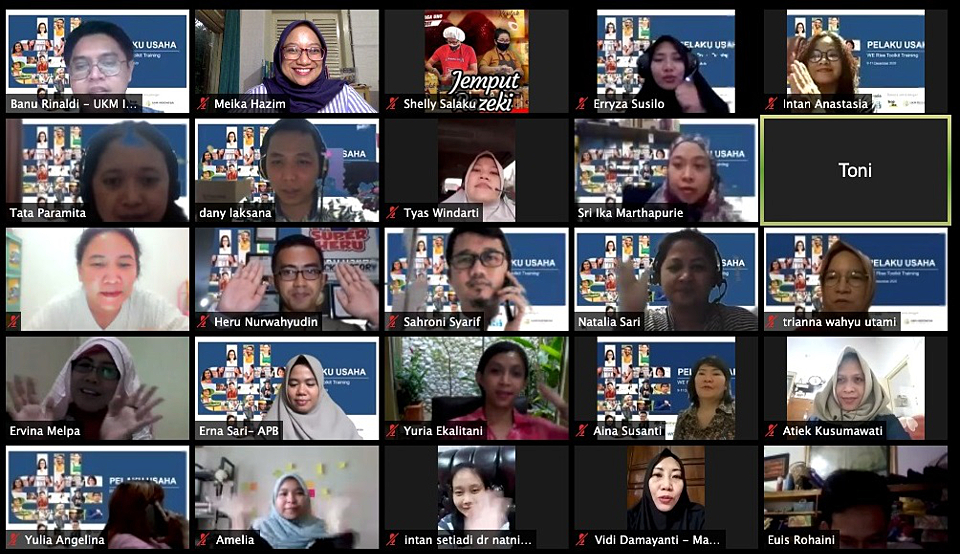
UN Women’s WeEmpowerAsia programme is supporting this drive with its WeRise toolkit and training, showing female entrepreneurs in Indonesia and Thailand how to overcome gender-related barriers, assess their financial needs, get funding, become more assertive, and help other women like them succeed.
WeEmpowerAsia, funded by the European Union, seeks to increase the number of women who lead and participate in private-sector businesses in Asia.
In the first WeRise workshop, from 9 to 11 December 2020, WeEmpowerAsia trained 41 female Indonesian entrepreneurs with the help of UKMIndonesia.id, an Indonesian social enterprise that helps MSMEs grow. The trainers used a toolkit developed by WeEmpowerAsia and Bopinc, an independent foundation that delivers business models viable in an environment of low-income consumers.
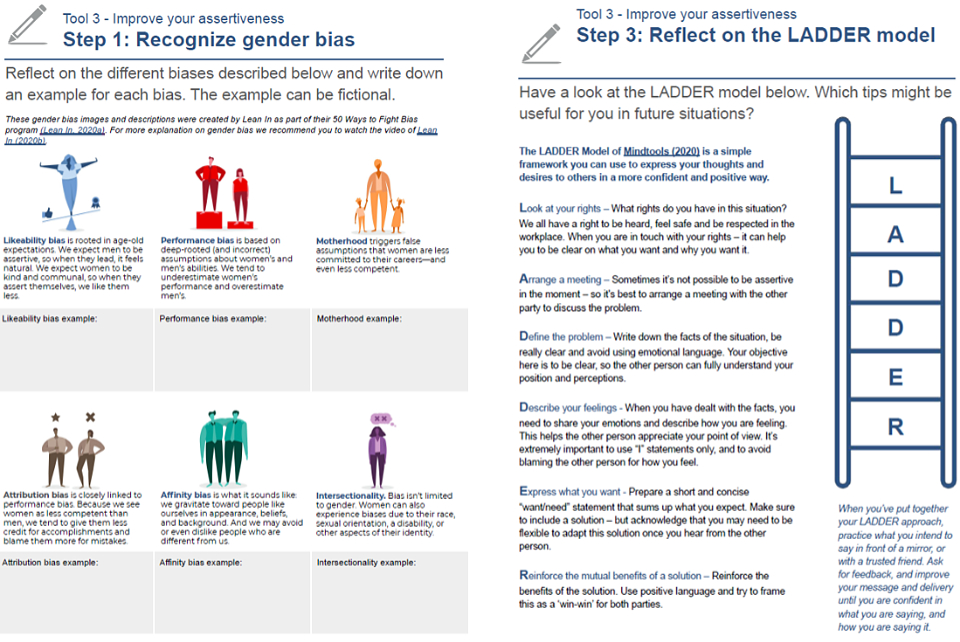
Kurniawan, 35, said: “I thought the hardship I faced at the beginning of my business was a normal thing, but after the training, I realized that some of them would have never occurred if I were a man. At that time, I tried to confront the degrading treatment with a professional attitude and good customer service, to prove that a woman can also become a reliable fruit trader -- which was a form of assertiveness, as I learned in this training.”
To strengthen assertiveness, the toolkit recommends LADDER, a simple framework to express thoughts and desires more confidently and positively.
The trainees also included Irene Setiawati, 43, a director of Maharani Craft, a fair-trade label in Bali that creates home decorations from corals and semi-precious stones. She shared with the other trainees the lessons the business learned in exporting to women-owned MSMEs.
“A lot of women SMEs want to export, but they do not know where and how to identify opportunities to expand and internationalize due to a limited business network and management skills,” she said.
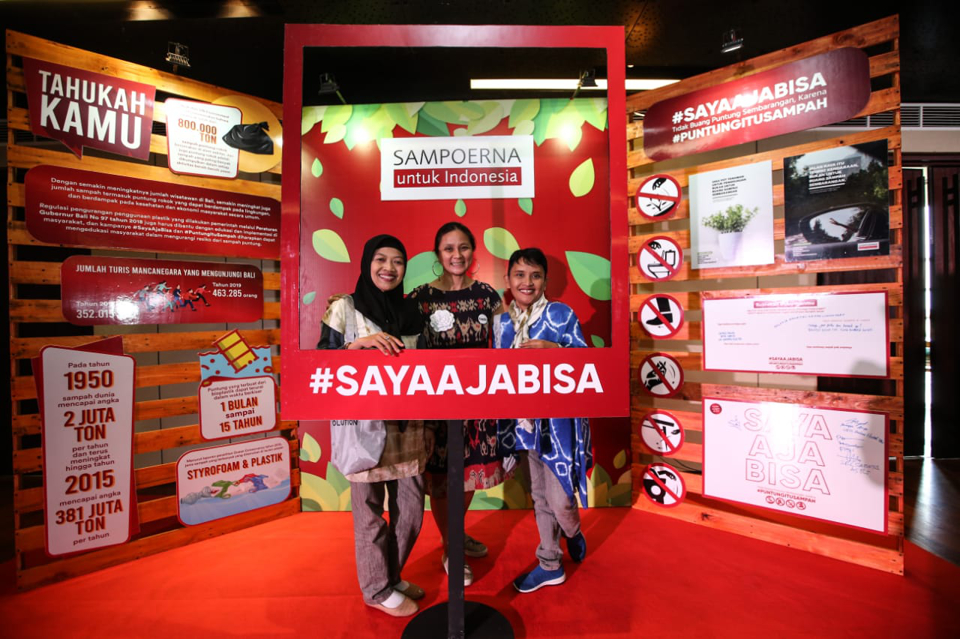
Another trainee, Yuria Ekalitani, 39, said she wants to empower women through her business. At her Canadian-style steak restaurant Bosteak, located in Cilacap, Central Java, she hires only women, especially those from socially disadvantaged backgrounds such as low education. She allows employees to bring their children to work and sets a small spot in the restaurant for day care.
“I believe that by giving opportunities to women, I could positively impact her family and her community,” Ekalitani said.
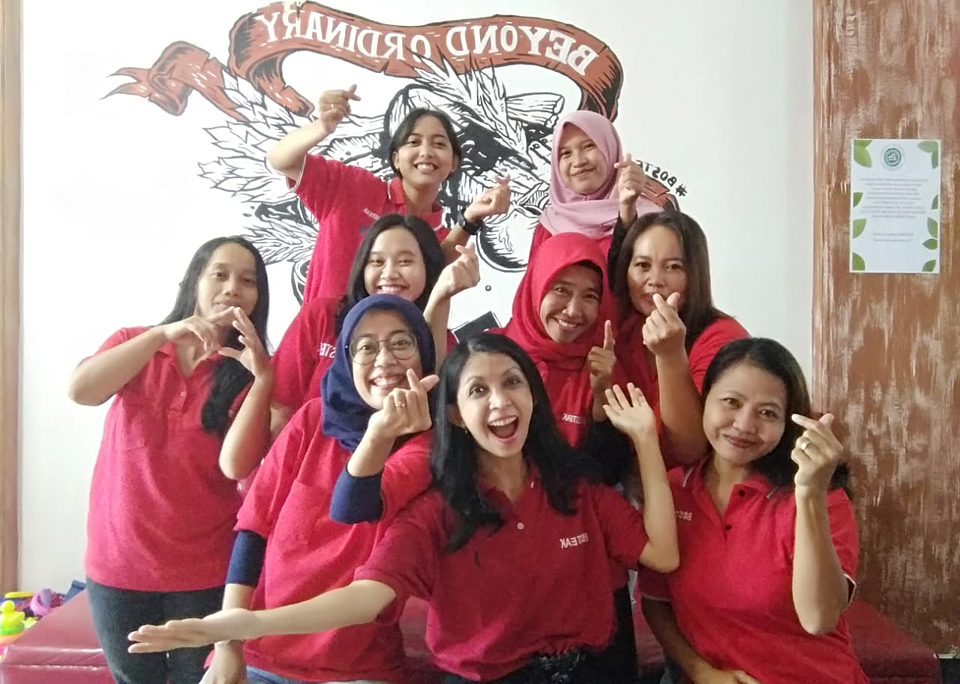
As a part of the training, Setiawati, Ekalitani, and other women entrepreneurs were guided to solidify their informal initiatives into organized action plan that support women. Although their businesses might be small in size, it should not stop them from creating impacts in their own scopes.
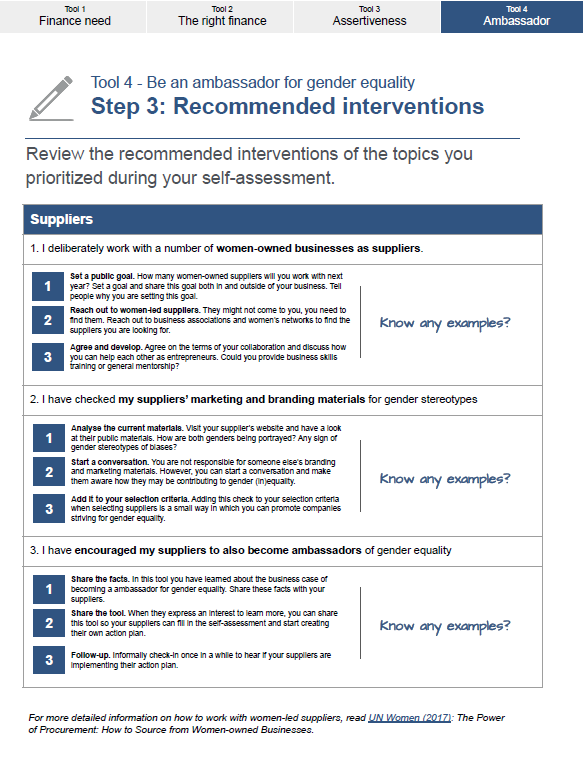
It was clear from the training that women need greater access to finance.
“Limited access to capital makes us ‘hard to breathe’ and restrains a lot of our decisions,” Setiawati said.
The training showed various options of finance providers, their pros and cons, and selection criteria, in simple explanations that enable entrepreneurs to make an informed decision.
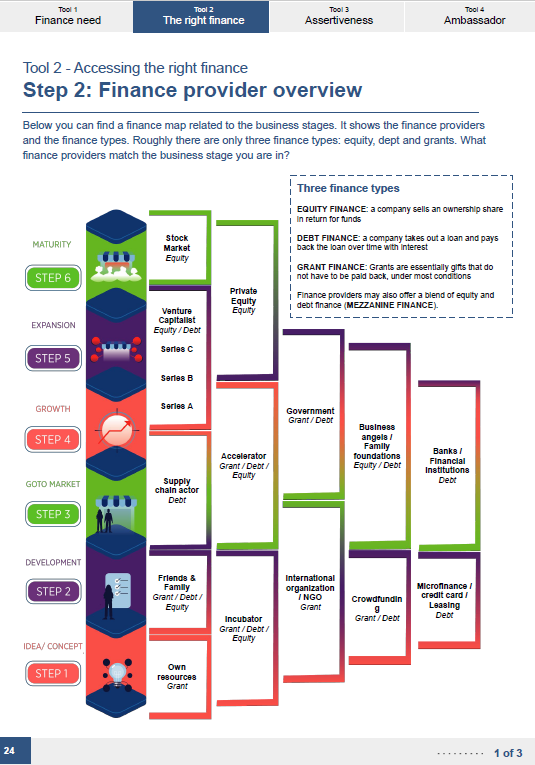
In Indonesia, WeEmpowerAsia plans to give the WeRise training to 80 more female entrepreneurs over the next six months. A total of 58 female entrepreneurs took the first WeRise trainings in Thailand, in February and March. About 200 more are expected to take the training in June.
For more information, please contact:
- Iriantoni Almuna
Country Programme Manager, WeEmpowerAsia
UN Women Indonesia
Email: [ Click to reveal ] - Giasinta Livia
Communication Support Specialist, WeEmpowerAsia
UN Women Indonesia
Email: [ Click to reveal ]